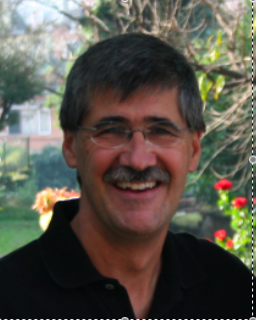A brilliant artist once said blessed are the peacemakers. In Spanish the phrase translates literally as on a good adventure are those who work for peace. In both English and Spanish the words work and make emerge from the Greek poíésis and an etymology that brings us the modern word poetry and which originally conveyed the idea of crafting something of high quality and beauty. Perhaps a combined translation would catch the spirit: “On a blessed odyssey are those who poetically craft peace.”
My formal education and professional training in peacebuilding prepared me to analytically understand and technically respond to human conflict. Precious little of that investment provided a foundation to poetically craft peace, or what we could call the heartflow that takes notice of the unspeakable, attends to the invisible, faces and names the ugliness of suffering while seeking to transform it toward the beauty of compassionate justice. In the hardened lands of violent conflict pax-poíésis gathers like dirt in sidewalk cracks, creating liminal seedbeds that birth the unexpected.
For many years as a peace professional I stopped writing poetry. Then poems crept in on the margins of “formal” work until they found a home at the center of how I envision the craft of moving between enmities. I watch for them now -- in conversations, in my musings and mutterings, in the lived experience, these seedlings of life that defy the barrenness of violence. I have included here several poems that I wrote in the months following 9/11. Three moments. Three countries. Three conversations.
bin Cruise
Today
we shot
a couple million dollars worth
of missiles
up a camel’s ass
to smoke out
a man
who on the cover of Time
looks just like
Jesus
hanging on my
Sunday School
wall.
October 10, 2001
Eating Soup in Bogota
Across the table
he dishes up split pea bisque
from an aluminum tureen
and tears open a piece of bread.
I had to go down to the police
to identify her.
They had
this piece of torso,
a kind of
with the soup spoon
he draws a square above his bowl
chunk of body.
No arms, head or legs,
just this
the spoon
plops back into his bowl
it was
well
ugly.
I had
never seen
anything
quite like that.
We nod
and concentrate
on our soup.
Neighbors told me she was pregnant.
Said the fetus was hung on a door.
The father shot a dozen times.
Hard thing to do
identify her, I mean.
They raised coca,
for the guerrillas, supposedly.
Then switched when the paras came,
so they could stay in their little house.
After a couple of months
I guess their new patrones
decided they were not of much use.
At their funeral
I was not sure,
sabes,
what blessing
The Priest stops flat
like the spoon in his cold soup.
Advice from the Mediator’s Fellowship
Don’t ask the mountain
To move, just take a pebble
Each time you visit.
Yangon, Burma
About the Author

John Paul Lederach is Professor of Practice for International Peacebuilding with the Joan B. Kroc Institute for International Peace Studies at the University of Notre Dame. He works as a practitioner-scholar, providing facilitation, mediation and training/education, with extensive experience at national and community levels in North and Latin America, Africa, Southeast and Central Asia. Widely known for the development of culturally appropriate approaches to conflict transformation and the design and implementation of strategic approaches to peacebuilding, his approach has focused on innovations for building constructive change in settings experiencing extensive violence and deep rooted-conflict. Author of 17 books and manuals, including Building Peace: Sustainable Reconciliation in Divided Societies (US Institute of Peace Press), The Little Book of Conflict Transformation (Good Books), The Moral Imagination: The Art and Soul of Building Peace (Oxford University Press), and his most recent with daughter Angela Jill, When Blood and Bones Cry Out: Journeys through the Soundscape of Healing and Reconciliation (Queensland University Press and Oxford University Press).
